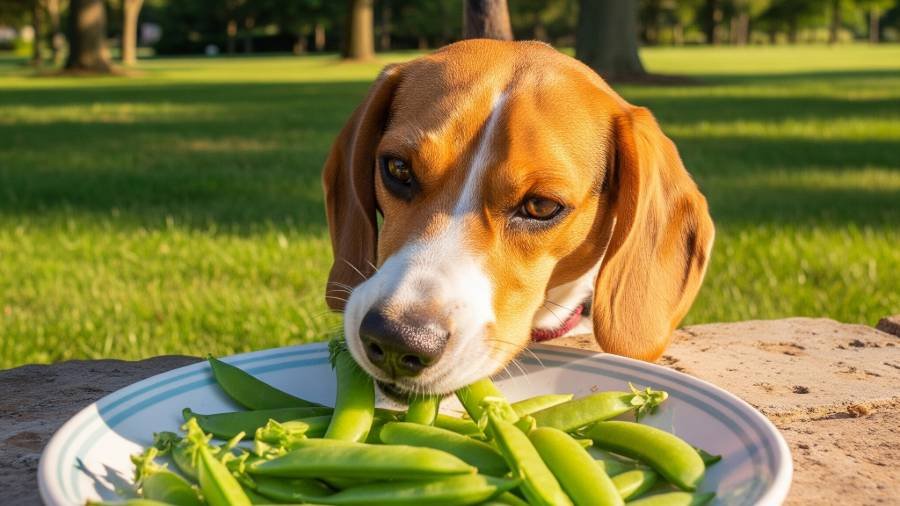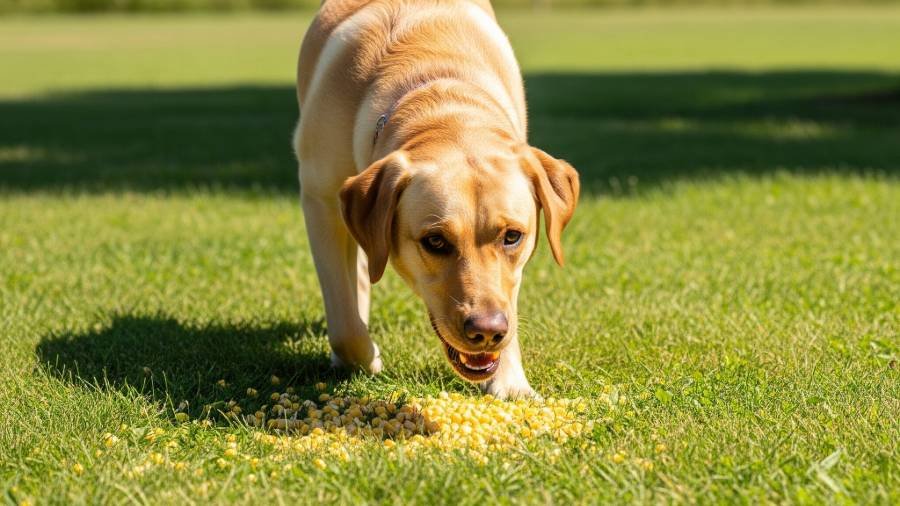Yes, dogs can eat hard-boiled eggs as a safe and nutritious addition to their diet when prepared properly and offered in moderation.
As a source of protein among human foods, cooked eggs like hard-boiled ones can enhance a dog’s diet, but they should complement their regular dog food rather than replace it.

Potential Benefits of Hard Boiled Eggs for Dogs
When dogs can eat hard-boiled eggs in small amounts, they offer several advantages that support a dog’s diet:
- Sources of Protein: Eggs are an excellent source of high-quality protein, aiding muscle growth and repair.
- Fatty Acids: Contain omega-3 fatty acids, which promote a healthy skin and coat.
- Vitamins and Minerals: Rich in vitamins A, D, and B12, plus minerals like selenium, boosting overall health.
- Low-Calorie Treat: Hard-boiled eggs are a light option for puppies eat eggs or adult dogs needing a snack.
- Digestive Support: The gentle nature of cooked eggs can help settle an upset stomach when including eggs sparingly.
These benefits shine when you feed your dog hard-boiled eggs in controlled portions. For more on safe human foods, explore can dogs eat carrots.
Risks and Dangers of Hard Boiled Eggs for Dogs
While hard-boiled eggs are safe for dogs, some risks should be considered:
- Allergic Reactions: Though rare, some dogs may develop allergies to eggs, showing symptoms like itching or ear infections.
- Overfeeding: Excessive eggs to your dog can lead to weight gain or an imbalance in their diet.
- High Fat Content: The yolk contains fat, which may upset dogs with sensitive stomachs or pancreatitis.
- Choking Hazard: Large pieces of egg or shell can pose a risk if a dog swallows them whole.
- Salmonella Risk: Though minimal with properly cooked eggs, improper handling can introduce bacteria.
- Nutritional Imbalance: Relying on eggs good for dogs can lack essential nutrients from balanced dog food.
How to Safely Feed Hard Boiled Eggs to Dogs
To ensure hard-boiled eggs are a safe treat, follow these guidelines:
- Cook Thoroughly: Boil eggs until fully cooked to eliminate salmonella risk; avoid feeding raw eggs due to potential biotin deficiency.
- Remove Shell: Peel the shell completely to prevent choking or digestive tract irritation.
- Cut into Small Pieces: Chop the egg into bite-sized portions, especially for puppies eat eggs or small breeds.
- Feed in Moderation: Offer a small amount (e.g., half an egg or one egg per week) as a treat, keeping it under 10% of a dog’s daily intake.
- Avoid Additives: Serve plain without salt, butter, or spices, which can harm a dog’s digestive system.
- Monitor Reactions: Introduce eggs gradually and watch for allergies or digestive issues over 24-48 hours. Talk to your vet if problems arise.
- Consult a Vet: Seek veterinary advice before adding eggs, especially for dogs with health conditions like pancreatitis or egg allergies.
Signs of Egg-Related Issues
If a dog consumes hard-boiled eggs excessively or reacts poorly, look for these signs:
- Vomiting, diarrhea, or reduced appetite
- Excessive scratching, redness, or ear infections (allergic reactions)
- Lethargy or unusual behavior
- Difficulty swallowing or choking (from egg pieces or shell)
- Abdominal pain or bloating (from overfeeding)
If these signs appear, stop feeding eggs and contact a veterinarian immediately. Severe reactions require urgent care.
Expert Opinions
Veterinary experts, such as the American Kennel Club (AKC) and the Pet Poison Helpline, confirm that dogs can eat hard-boiled eggs safely in moderation, praising their protein and fatty acid content. The AKC advises removing shells and limiting intake to avoid digestive upset, while cautioning against feed raw eggs due to salmonella and biotin risks. For more on canine nutrition, check can dogs eat scrambled eggs.
Additional Considerations
- Health Conditions: Dogs with pancreatitis or egg allergies should avoid eggs. Talk to your vet first.
- Puppies: Young dogs can eat eggs but need smaller portions and closer monitoring.
- Dog Preferences: Many dogs enjoy the taste of cooked eggs, while others may not. If uninterested, try alternatives like can dogs eat blueberries.
- Organic vs. Non-Organic: Organic eggs may reduce pesticide exposure, but all should be washed before boiling.
- Versatility: Hard-boiled eggs can be mashed into dog food for added nutrition.
Safe Treat Alternatives
Instead of hard-boiled eggs, consider these safe-for-dogs treats, tailored to enhance a dog’s diet:
- Cooked Turkey: Plain, unseasoned turkey bits provide protein.
- Carrots: Small, raw carrot sticks support dental health.
- Blueberries: A handful of fresh blueberries offer antioxidants.
- Plain Yogurt: A teaspoon of plain Greek yogurt aids digestion.
Introduce new treats gradually, monitor for reactions, and consult a vet if unsure about safety.
Dogs can eat hard-boiled eggs as a safe, protein-rich treat when fed in moderation, offering benefits like fatty acids and vitamins that support skin and coat health.
However, risks such as allergies, overfeeding, or choking hazard require proper preparation – cooking thoroughly, removing shells, and limiting portions. Puppies or dogs with health issues like pancreatitis should avoid eggs unless approved by a vet, and a balanced dog’s diet should remain the priority.
Always talk to your vet before including eggs or other human foods, and opt for safe alternatives. For more on canine nutrition, explore can dogs eat bananas, can dogs eat peas, or what fruits can dogs eat.
For additional questions about what dogs can eat or dietary concerns, feel free to ask!





